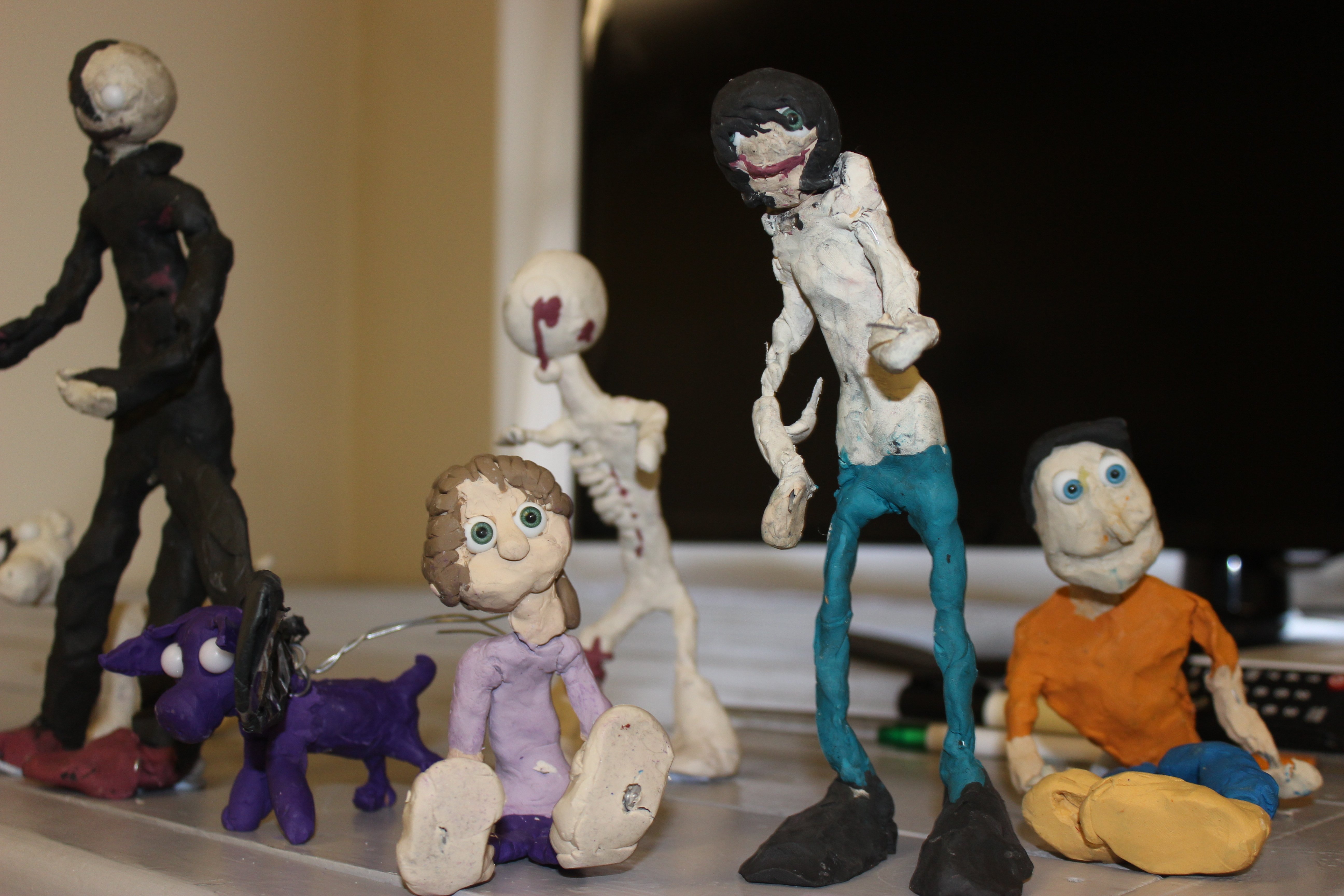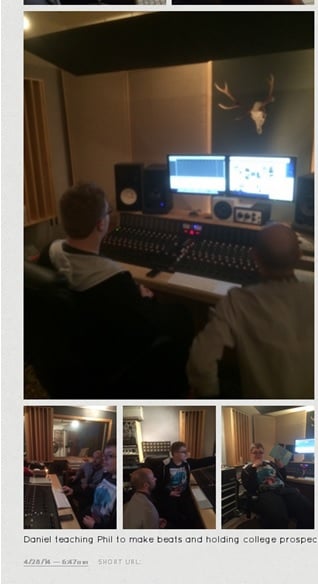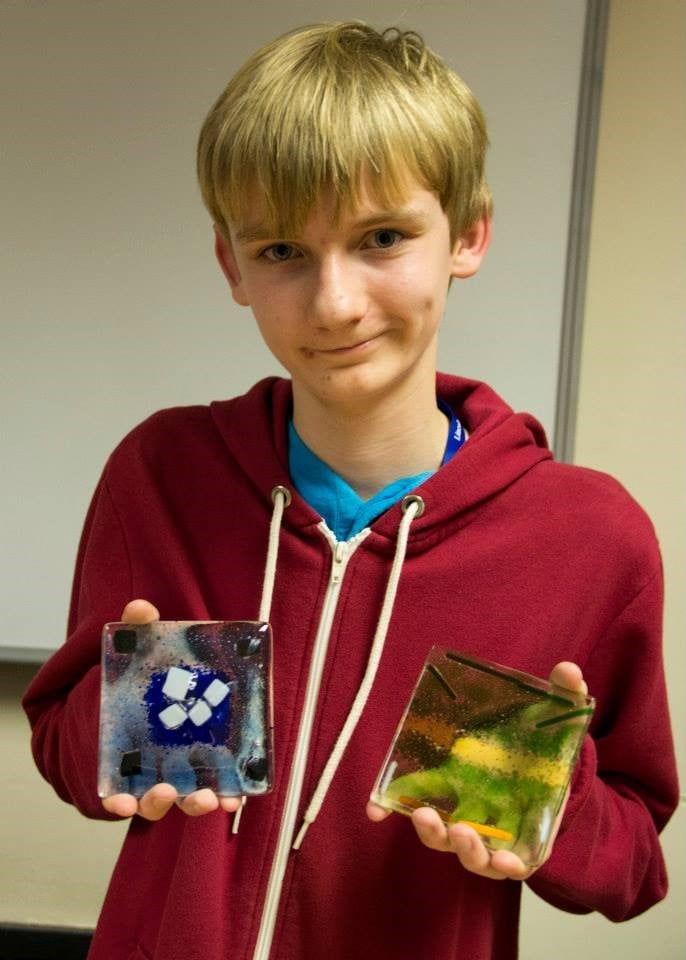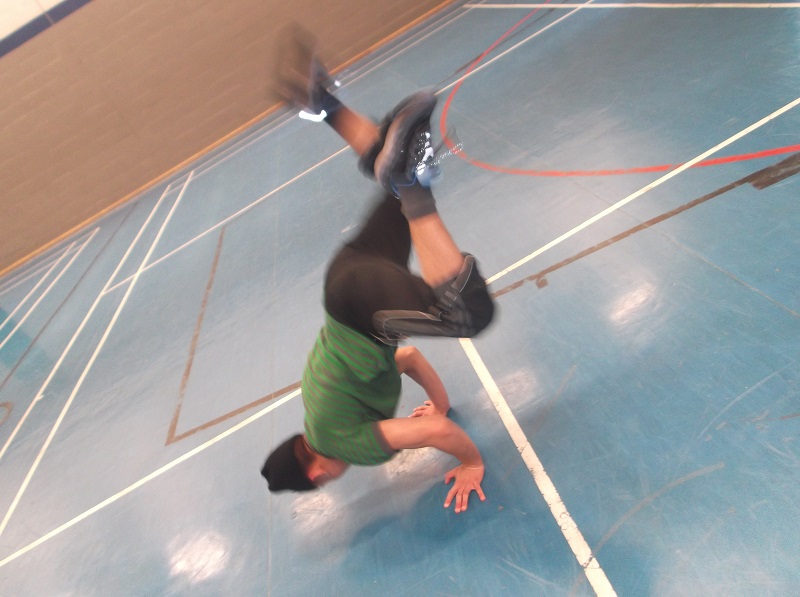
Guidance for working with young people who are out of mainstream education due to illness
BY: Guest Writer
12 Mar 2015
In this blog we hear from Hazel Stewart, Leading arts advisor and learning manager at EOTAS Northumberland, Good Practice Centre 2014-15.
Why Arts Award?
Most of the young people who are referred to the Northumberland
Education Other Than At School (EOTAS) service are unable to
attend school for lengthy periods of time and often have had difficulties in leaving their home for months or even years. We believe that the creative process and being involved in the arts is essential to a young person’s wellbeing. The Arts Award journey is hugely rewarding for the young people themselves and it is very inspiring for teachers and others involved on their journey to witness their growing confidence. We teach students one-to-one in their homes and also in small groups of four to six in community centres around the county.
All of the young people who come to us have very low self esteem when they begin. The feeling with Arts Award is that the process is different to the rest of the curriculum as it allows the young person to develop and achieve at their own pace. The great thing as an adviser is that we arrange the moderation when our students are ready and this means that the normal time limits for doing controlled assessments or other course work do not apply.
Top tips for delivering Arts Award with young people who are out of mainstream education due to illness
- Child protection issues are of paramount importance – make sure you are protected by Disclosure and Barring Service (DBS) checks and the organisation you are working for. If you are working in the home of a child, always have another responsible adult in the home. Note that young people with illness need to be protected from intrusion, for example it may not be possible to share their photographs and film as part of their evidence.
- Carry lots of resources with you so that you can give choices about the arts activities you will offer.
- No matter how ill the young person is, they will enjoy a wide range of arts activities including sculpture, painting, photography, creative writing – even if you are writing and they are telling.
- Involve the young person in deciding the course of Arts Award, in a situation where there has been illness it may be that everything has been taken from their control.
- If it is possible to involve the young people with a group this can be beneficial. It removes isolation and generates a great deal of enthusiasm and peer support for young people. If this isn’t possible, get parents and carers involved. Supported discussions and review can be a lot of fun and also means that the young person is not disadvantaged with the lack of a group to work with.
- Have a range of ideas ready to enthuse the young people and put ambition their way.
- Have a process of recording progress which is suitable to individual needs. Some young people may be too ill to do extended writing. Use voice recorders and video recorders to record progress and reflection.
- Arts Award may take more time than normal depending on illness and hospital appointments, improvements and setbacks. Decide at the outset the time you can dedicate and what the young person can do on their own.
- Link as much of the curriculum from English and other subjects to the Arts Award. Eg ‘Writing to Entertain’ as one of the writing trilogies for English at GCSE. A lot of really poorly students struggle with extended pieces of writing, Writing to Entertain’ gives a real purpose to the writing task and
enthuses the student. Writing with the purpose of making a book or a film or illustrating with photography or artwork is a fantastic way to inspire the need to write.
Our advice is to ‘Just do it’. Young people often feel defined by their illness; Arts Award is a great way of unlocking potential and can be a great boost to the spirits. It may seem scary, but it is worth every second of overcoming your own fear to see the benefits for the young people.
How we deliver Silver Arts Award

Our planning very much depends on the circumstances of the individual young person. One-to-one teaching at home presents certain challenges in terms of access to resources and workshops. For the purpose of this resource we concentrate on small group delivery of a project involving writing, illustrating books and animating stories.
Silver Arts Award Unit 1: arts practice and pathways
Arts challenge
The project involved stop motion animation using ‘Writing to Entertain’ as the starting point. As part of the English curriculum, students were asked to produce a short story in the “Spooky” genre. Students were guided to use
their imagination to write a draft story and then redraft for a final piece. The work leading up to this asked the students to look at how writers create atmosphere and build suspense.
Students decided their personal challenge was to create a spooky story and create an animated short film from this.
A professional artist worked with the students to create the book. Students were taught paper making and worked with the artist on illustrating their books. They then worked on building models and sets for their animation. Evidence included planning, drawings for models, photographs and peer and self reviews.
Students then worked together in teams to create their individual animated stories with one acting as director and others working to help produce
the animation. Once the raw footage was uploaded to the computers, the students then edited their work and added sound effects and a soundtrack to the finished piece.
Arts review
Students are encouraged to attend a range of arts events including free galleries and films, local productions and other arts workshops. Coming from a predominantly rural community we usually organise transport parental support to accompany the young people. Young people are encouraged to review events, which includes written pieces in a variety of formats and filmed discussion groups.
Arts research
The young people produce a leaflet or a magazine of what’s on in their area. Research includes using the internet, using community leaflets and information to compile a guide for young people to access the arts in their area.
Students interview the visiting arts practitioners to find out about their career pathways to help inspire thoughts about their own futures. This
research is supplemented by individual research conducted by the young people using the internet and personal advisors from the Connexions
Service. Students are also encouraged to attend open days and other events to find out more about local offers for pathways into working in the arts from further education colleges.
Silver Arts Award Unit 2: arts leadership
At this point the young people within the group are aware of their strengths and weaknesses and are able to work together to present their work and produce workshops for others. In the past we have worked with other community groups and produced animation workshops for others including the retired and University of the Third Age. Students held a film screening to which friends, family and educational professionals were invited. The young people then taught the participants how to produce a short animated film using ready made backdrops and some simple props. All of this was documented with photographs and personal reflection from the various participants.
Related posts
BY: Guest Writer
BY: Alan Lynch




Comments & Replies